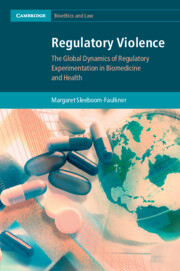Refine search
Actions for selected content:
236 results
Human and Created: Expanding the Common Good with Integral Ecology
-
- Journal:
- Horizons , First View
- Published online by Cambridge University Press:
- 18 November 2025, pp. 1-31
-
- Article
- Export citation
“The Only Language Common to All”: Poesia Negra and Black Grammars of Solidarity
-
- Journal:
- African Studies Review / Volume 68 / Issue 3 / September 2025
- Published online by Cambridge University Press:
- 31 October 2025, pp. 513-532
-
- Article
-
- You have access
- Open access
- HTML
- Export citation
4 - Veiled Agents
-
- Book:
- Türkiye, Iran, and the Politics of Comparison
- Published online:
- 21 September 2025
- Print publication:
- 09 October 2025, pp 161-203
-
- Chapter
- Export citation
Chapter 3 - How Advantaged Groups Create, Perpetuate, and Grow Their Advantage
- from Part I - Intergroup Relations and Group Processes
-
- Book:
- The Psychology of System Change and Resistance to Change
- Published online:
- 23 September 2025
- Print publication:
- 09 October 2025, pp 51-70
-
- Chapter
- Export citation
7 - Armed Internationalism (1936–1979)
-
- Book:
- Armed Internationalists
- Published online:
- 19 September 2025
- Print publication:
- 09 October 2025, pp 238-260
-
- Chapter
- Export citation
Chapter 4 - Ideologies of System Justification and System Change, and How Advantaged Group Members Become Allies in Change
- from Part I - Intergroup Relations and Group Processes
-
- Book:
- The Psychology of System Change and Resistance to Change
- Published online:
- 23 September 2025
- Print publication:
- 09 October 2025, pp 71-91
-
- Chapter
- Export citation
Decolonial Diasporas: Iranian Feminist Solidarity in Global Context
-
- Journal:
- Iranian Studies ,
- Published online by Cambridge University Press:
- 08 October 2025, pp. 1-9
-
- Article
- Export citation
Navigating the Underground in Plain Sight: Experiences of Clandestine Solidarity in South Africa
-
- Journal:
- African Studies Review / Volume 68 / Issue 3 / September 2025
- Published online by Cambridge University Press:
- 08 October 2025, pp. 472-491
-
- Article
-
- You have access
- Open access
- HTML
- Export citation
“Revolution” as Restoration: Woman, Life, Freedom in the Diasporic Imaginary
-
- Journal:
- Iranian Studies ,
- Published online by Cambridge University Press:
- 07 October 2025, pp. 1-7
-
- Article
-
- You have access
- Open access
- HTML
- Export citation
Palestine Magazines and Co-Created Solidarity in Scandinavia
- Part of
-
- Journal:
- Public Humanities / Volume 1 / 2025
- Published online by Cambridge University Press:
- 29 September 2025, e140
-
- Article
-
- You have access
- Open access
- HTML
- Export citation
Aboard the ‘Commonist Lifeboat’: Metaphor, custom, materiality: Response to Itamar Mann Agora
-
- Journal:
- Global Constitutionalism , First View
- Published online by Cambridge University Press:
- 13 August 2025, pp. 1-7
-
- Article
-
- You have access
- Open access
- HTML
- Export citation
Chapter 18 - Making Ends Meet in the Gig Economy
- from Part II - Histories
-
-
- Book:
- Money and American Literature
- Published online:
- 03 July 2025
- Print publication:
- 17 July 2025, pp 311-326
-
- Chapter
- Export citation
Chapter 18 - Contemporary Latinx Indigeneities
- from Part IV - Theoretical Turns
-
-
- Book:
- Latinx Literature in Transition, 1992–2020
- Published online:
- 19 June 2025
- Print publication:
- 03 July 2025, pp 333-351
-
- Chapter
- Export citation
Chapter 7 - The Trouble with Solidarity
- from Part II - Transforming Genres
-
-
- Book:
- Latinx Literature in Transition, 1992–2020
- Published online:
- 19 June 2025
- Print publication:
- 03 July 2025, pp 135-150
-
- Chapter
- Export citation
Money, Solidarity, and Half a Century of Health Reform
-
- Journal:
- American Journal of Law & Medicine / Volume 51 / Issue 2 / July 2025
- Published online by Cambridge University Press:
- 16 September 2025, pp. 314-336
- Print publication:
- July 2025
-
- Article
- Export citation
Voice as Constellation: Listening to the Voices and Silences of Displacement in Three Acts
-
- Journal:
- Royal Musical Association Research Chronicle ,
- Published online by Cambridge University Press:
- 28 May 2025, pp. 1-12
-
- Article
-
- You have access
- Open access
- HTML
- Export citation

Regulatory Violence
- The Global Dynamics of Regulatory Experimentation in Biomedicine and Health
-
- Published online:
- 21 May 2025
- Print publication:
- 22 May 2025
-
- Book
-
- You have access
- Open access
- Export citation
4 - The Pragmatic Approach of International Human Rights Law
- from Title 1 - Theoretical Elements of International Human Rights Law
-
- Book:
- International Human Rights Law
- Published online:
- 10 April 2025
- Print publication:
- 01 May 2025, pp 27-40
-
- Chapter
- Export citation
6 - Epilogue
-
- Book:
- The Nehru Years
- Published online:
- 29 April 2025
- Print publication:
- 10 April 2025, pp 177-181
-
- Chapter
- Export citation
Risky choices and solidarity: disentangling different behavioural channels
-
- Journal:
- Experimental Economics / Volume 24 / Issue 4 / December 2021
- Published online by Cambridge University Press:
- 14 March 2025, pp. 1185-1214
-
- Article
-
- You have access
- Open access
- HTML
- Export citation
